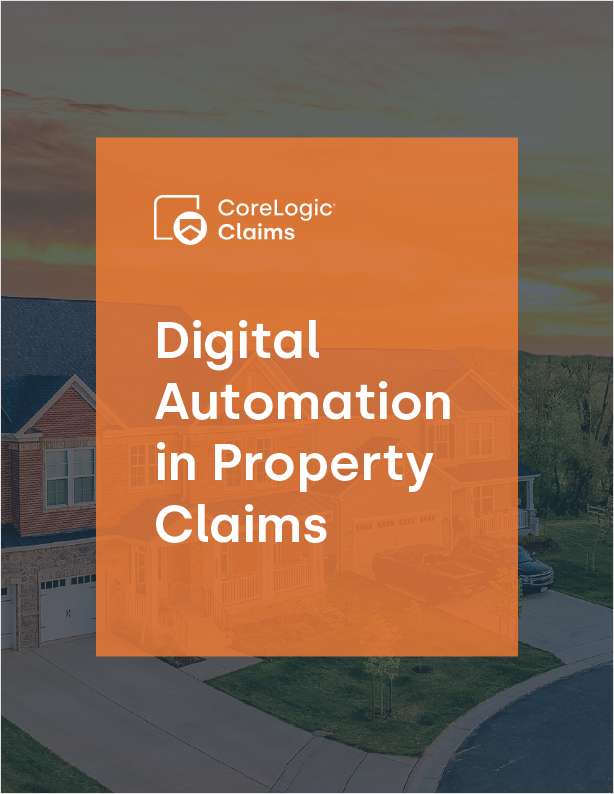Preserving Attorney-Client Confidentiality
Sometimes attorneys overlook the additional obligation set by the ethical rules for attorneys to protect confidential information obtained during the course of the representation.
December 20, 2017 at 11:11 AM
5 minute read

Many attorneys are well-versed in the scope and obligations of the privilege shared between attorney and client. However, sometimes attorneys overlook the additional obligation set by the ethical rules for attorneys to protect confidential information obtained during the course of the representation. Such information may not always be “privileged,” even if it is “confidential.” Indeed, the scope of Rule 1.6 of the Connecticut Rules of Professional Conduct extends to all “information relating to the representation of a client.”
As a result, seemingly ordinary facts, such as the actual identity of a client, may warrant protection from inadvertent or unauthorized disclosure. Additionally, with a few exceptions, the attorney's duty to maintain confidential information survives the attorney-client relationship and extends to employees and staff of the law firm. And the failure to protect such information can result in severe consequences both from licensing bodies and the client.
Attorneys who reveal client confidences and secrets may face discipline from the Connecticut Bar and, perhaps even worse, be on the receiving end of a legal malpractice claim. For decades, maintaining confidences was a simple matter involving keeping elevator chatter and lunch discussions to a minimum. But with the rise of teleworking and increasing reliance on portable electronic devices, it is more challenging now than ever for attorneys to protect client confidences and secrets. Undoubtedly, data security has become a vitally important issue for law firms.
Hackers pose a risk to law firms. Recent data even suggest that hackers view law firms as the gateway to their clients' information because the perception is that law firms' networks are easier to penetrate. For clients, the prospect of a law firm data breach is especially concerning. Still, by implementing simple protocols, practices, and procedures designed to protect client confidences and secrets, client confidential information can be protected from targeted threats and other disclosure.
Generally speaking, there are three types of information that can be implicated by client confidences and secrets: oral communications, documents, and electronic data. Each presents its own challenges, and the steps for preserving confidences and secrets will vary depending on the size, nature, and type of practice.
1. Oral Communications
Communications about client matters outside of the law office can be unnecessary (and, therefore, avoidable), unless they are needed to obtain legal support or render legal services. Clients expect their business to stay confidential; attorneys are typically retained to ensure that it remains confidential. Indeed, news stories about lawyers overheard at lunches discussing client business suggest that this continues to be an area of risk for attorneys.
Attorneys can set an example for more junior attorneys and staff working on their matters by maintaining client confidences and discouraging team members from discussing client representations outside of the firm. The consequences of such disclosures can be great. Attorneys can also review the types of situations in which the issue may arise, such as inquiries from the press or casual cocktail party conversation, in defining the boundaries and determining how to handle the situation.
2. Documents
Client documents and those generated during the course of a representation often contain confidential, proprietary, and sometimes personal information. Given the sensitive nature of the information, law practices may have a protocol or internal practice for addressing the various categories of documents, including financial documents (such as billing records), file documents (generated during the course of the representation), and other related documents that might not be client-specific.
Whether documented in a formal policy or simply part of a firm's routine protocols, firms can address document maintenance, retention, and destruction issues. Some firms will store hard copy confidential files in secured areas that are not publicly accessible. Other policies can consider the method, duration, and place of retention. In conjunction with the ethical rules, attorneys may decide how to handle original copies of documents, the right of the client to the documents, and the notification procedures that could be followed regarding the ultimate disposition of the documents.
Because many situations are unique and may require careful consideration of the facts and circumstances, firms may be in the best situation to identify what practices or written protocols work best for their clients.
3. Electronic Data
In order to protect electronic data, there is no substitute for adequate security protocols prepared by professionals. Regardless of the size or nature of the law practice, clients expect that adequate security protocols exist to protect their information. In response to this issue, most firms secure and update their computer systems and internet access in response to evolving threats.
In addition, specific policies can address and prevent circumstances where client information is left vulnerable. For example, some law firms choose to limit or disallow employees from using personal email accounts to send or receive any “work” emails. Others will train employees regarding the law firm's technology to help reduce the risk of disclosures outside of the law firm's secured environment.
Experts in the field can help law firms and attorneys determine what level of protection works best for their practice and whether specific policies (regarding passwords or encryption) could be adopted for mobile devices. The biggest risk is for attorneys to assume that they are not vulnerable or that they do not possess confidential information that could be valuable to hackers or other bad actors.
Maintaining client confidences and secrets may seem like a daunting task. But given the potential risks brought by changing technology and heightened client expectations, law firms that take a proactive approach by considering these suggested steps can establish a culture and practice where client secrets are treated with the utmost care.
This content has been archived. It is available through our partners, LexisNexis® and Bloomberg Law.
To view this content, please continue to their sites.
Not a Lexis Subscriber?
Subscribe Now
Not a Bloomberg Law Subscriber?
Subscribe Now
NOT FOR REPRINT
© 2025 ALM Global, LLC, All Rights Reserved. Request academic re-use from www.copyright.com. All other uses, submit a request to [email protected]. For more information visit Asset & Logo Licensing.
You Might Like
View All
Trump's DOJ Delays Releasing Jan. 6 FBI Agents List Under Consent Order
3 minute read
Judge Grills DOJ on Trump’s Birthright Citizenship Executive Order

Justice 'Weaponization Working Group' Will Examine Officials Who Investigated Trump, US AG Bondi Says

Trending Stories
- 1ACC CLO Survey Waves Warning Flags for Boards
- 2States Accuse Trump of Thwarting Court's Funding Restoration Order
- 3Microsoft Becomes Latest Tech Company to Face Claims of Stealing Marketing Commissions From Influencers
- 4Coral Gables Attorney Busted for Stalking Lawyer
- 5Trump's DOJ Delays Releasing Jan. 6 FBI Agents List Under Consent Order
Who Got The Work
J. Brugh Lower of Gibbons has entered an appearance for industrial equipment supplier Devco Corporation in a pending trademark infringement lawsuit. The suit, accusing the defendant of selling knock-off Graco products, was filed Dec. 18 in New Jersey District Court by Rivkin Radler on behalf of Graco Inc. and Graco Minnesota. The case, assigned to U.S. District Judge Zahid N. Quraishi, is 3:24-cv-11294, Graco Inc. et al v. Devco Corporation.
Who Got The Work
Rebecca Maller-Stein and Kent A. Yalowitz of Arnold & Porter Kaye Scholer have entered their appearances for Hanaco Venture Capital and its executives, Lior Prosor and David Frankel, in a pending securities lawsuit. The action, filed on Dec. 24 in New York Southern District Court by Zell, Aron & Co. on behalf of Goldeneye Advisors, accuses the defendants of negligently and fraudulently managing the plaintiff's $1 million investment. The case, assigned to U.S. District Judge Vernon S. Broderick, is 1:24-cv-09918, Goldeneye Advisors, LLC v. Hanaco Venture Capital, Ltd. et al.
Who Got The Work
Attorneys from A&O Shearman has stepped in as defense counsel for Toronto-Dominion Bank and other defendants in a pending securities class action. The suit, filed Dec. 11 in New York Southern District Court by Bleichmar Fonti & Auld, accuses the defendants of concealing the bank's 'pervasive' deficiencies in regards to its compliance with the Bank Secrecy Act and the quality of its anti-money laundering controls. The case, assigned to U.S. District Judge Arun Subramanian, is 1:24-cv-09445, Gonzalez v. The Toronto-Dominion Bank et al.
Who Got The Work
Crown Castle International, a Pennsylvania company providing shared communications infrastructure, has turned to Luke D. Wolf of Gordon Rees Scully Mansukhani to fend off a pending breach-of-contract lawsuit. The court action, filed Nov. 25 in Michigan Eastern District Court by Hooper Hathaway PC on behalf of The Town Residences LLC, accuses Crown Castle of failing to transfer approximately $30,000 in utility payments from T-Mobile in breach of a roof-top lease and assignment agreement. The case, assigned to U.S. District Judge Susan K. Declercq, is 2:24-cv-13131, The Town Residences LLC v. T-Mobile US, Inc. et al.
Who Got The Work
Wilfred P. Coronato and Daniel M. Schwartz of McCarter & English have stepped in as defense counsel to Electrolux Home Products Inc. in a pending product liability lawsuit. The court action, filed Nov. 26 in New York Eastern District Court by Poulos Lopiccolo PC and Nagel Rice LLP on behalf of David Stern, alleges that the defendant's refrigerators’ drawers and shelving repeatedly break and fall apart within months after purchase. The case, assigned to U.S. District Judge Joan M. Azrack, is 2:24-cv-08204, Stern v. Electrolux Home Products, Inc.
Featured Firms
Law Offices of Gary Martin Hays & Associates, P.C.
(470) 294-1674
Law Offices of Mark E. Salomone
(857) 444-6468
Smith & Hassler
(713) 739-1250










